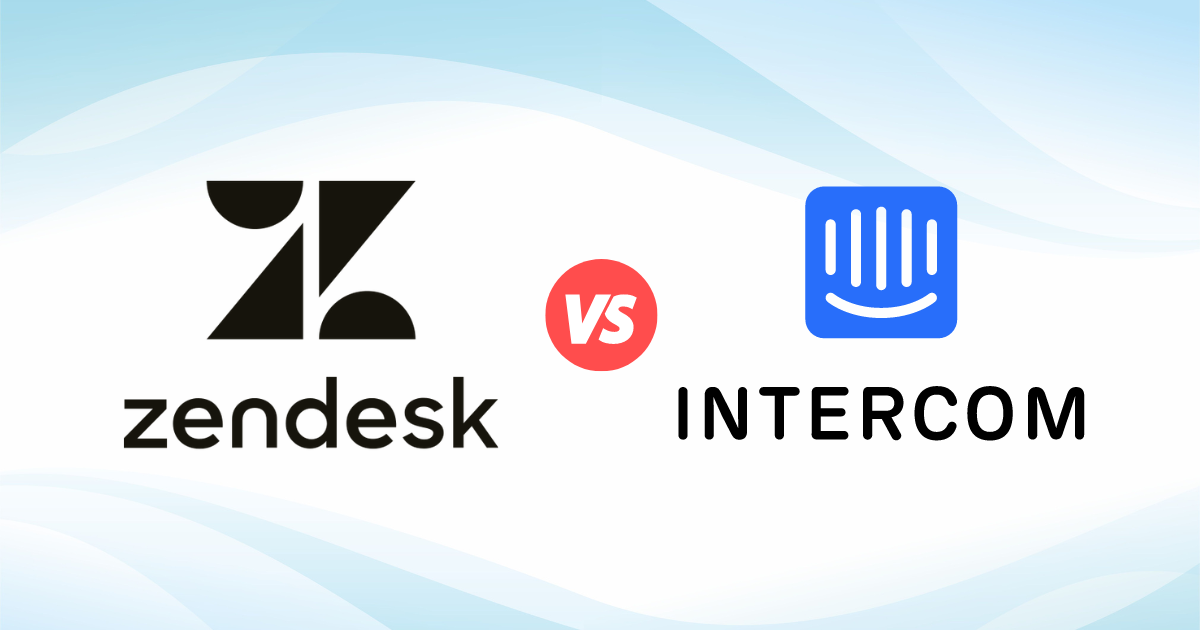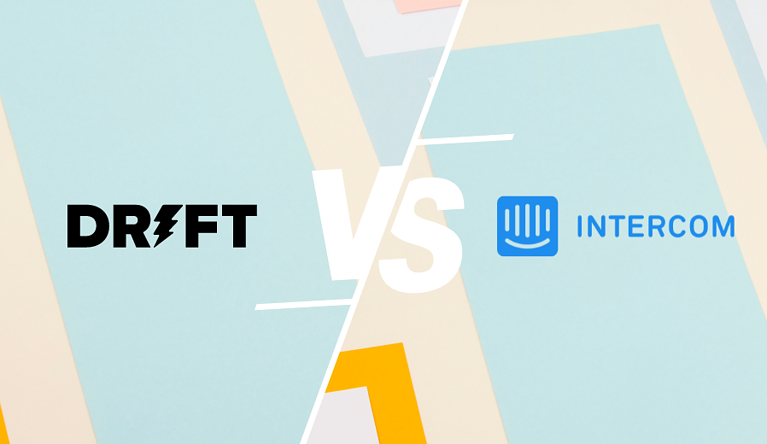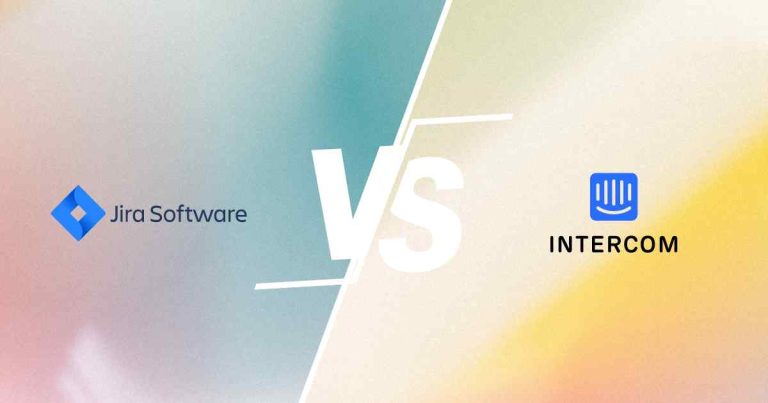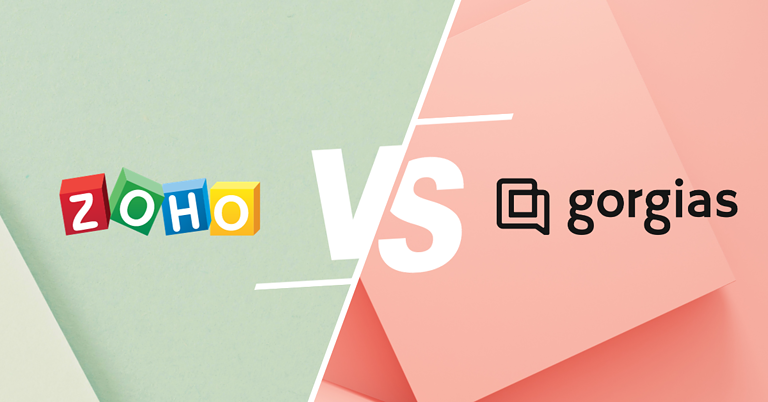Running a rapidly expanding business comes with challenges. As your business grows, so does the volume of customer inquiries and support tickets. Managing everything manually is becoming increasingly difficult, and you need a robust customer support platform to streamline your operations.
Let’s look at two of the best customer support software currently on the market.
Zendesk, the OG of customer support software, is jam-packed with everything you need for support but is often criticized for its complexity. They are the perfect example of ‘Great features come with great complexity.’
On the other hand, Intercom brings a dynamic approach to customer support. Its suite of tools goes beyond traditional ticketing and focuses on customer engagement and messaging automation. From in-app chat to personalized autoresponders, Intercom provides a unified experience across multiple channels, creating a support ecosystem that nurtures and converts leads.
Intercom is considered more of a CRM than a helpdesk solution.
As these platforms go head-to-head, we’ll dissect their strengths, delve into their unique AI-powered capabilities, and help you determine which one holds the key to elevating your customer support and engagement strategies. So, get ready for an insightful journey through the landscapes of Zendesk and Intercom, where support excellence converges with AI innovation.
QUICK NOTE: If you are a startup or SMB, Zendesk or Intercom might not be a good fit for you. Check out ThriveDesk, our take on customer support software for startups or SMBs.
Zendesk vs Intercom at a glance
| At a glance… | Zendesk | Intercom |
|---|---|---|
| Rating | 4.3/5 | 4.5/5 |
| Niche | Small to mid-sized businesses | Small to mid-sized businesses |
| Starting price | $49 | $74 |
| Free trial | 14 days | 14 days |
Overview of Zendesk

Zendesk is your trusted ally in customer service. Designed for all kinds of businesses, from small startups to giant enterprises, it’s the secret weapon that keeps customers happy.
With Zendesk, customer questions are a breeze to handle. You get a dashboard that makes creating, tracking, and organizing tickets easy. It’s like your customer support command center.
Zendesk lets you chat with customers through email, chat, social media, or phone. So, no matter where your customers are, you’re there too.
Big names like Airbnb and Shopify already trust Zendesk. It’s like having a global support team at your fingertips.
Zendesk also plays well with others. It can team up with tools like Salesforce and Slack, so everything runs smoothly.
So, whether you’re a startup or a global giant, Zendesk’s got your back for top-notch customer support.
Overview of Intercom

Intercom is the go-to solution for businesses seeking to elevate customer support and sales processes. With its user-friendly interface and advanced functionalities, Intercom offers a comprehensive suite of tools designed to effectively communicate and engage with customers.
Intercom’s messaging system enables real-time interactions through various channels, including chat, email, and in-app messages. Connect with customers wherever they are for timely assistance and personalized experiences.
Experience targeted communication with Intercom’s automation and segmentation features. Create personalized messages for specific customer segments, driving engagement and satisfaction.
Streamline support processes with Intercom’s ticketing system and knowledge base. Efficiently manage customer inquiries and empower customers to find answers independently.
Seamlessly integrate Intercom with popular third-party tools and platforms, centralizing customer data and improving workflow efficiency.
Gain valuable insights with Intercom’s analytics and reporting capabilities. Track key metrics, measure campaign success, and optimize customer engagement strategies.
Experience the comprehensive power of Intercom for effective customer communication, automation, support tools, integrations, and analytics.
Zendesk vs Intercom: Key features and functionalities
When comparing Zendesk and Intercom, evaluating their core features and functionalities is essential to determine which platform best suits your organization’s customer support needs. Let’s explore how Zendesk and Intercom stack up in terms of basic functionalities required by a helpdesk software.
| Features | Zendesk | Intercom |
|---|---|---|
Integrations | Zendesk integrates with over 1,000 apps, including Salesforce, HubSpot, and Google Workspace | Limited integrations available |
Self-service portal | Zendesk offers a self-service portal where customers can find answers to their questions and troubleshoot issues on their own | Intercom offers a self-service portal where customers can find answers to their questions, with a knowledge base, community forum, and articles |
Live chat | Zendesk offers live chat for customer support agents to communicate with customers in real time | Intercom offers live chat for customer support agents to communicate with customers in real time |
Reporting | Zendesk offers a variety of reports that help businesses track customer support metrics, such as ticket volume, response time, and customer satisfaction | Intercom offers limited reporting and analytics |
Mobile app | Zendesk offers a mobile app for both iOS and Android | Intercom offers a mobile app for both iOS and Android |
AI | Zendesk’s AI chatbots are powered by Answer Bot, Zendesk’s own AI technology. Answer Bot can understand common customer queries and answer them using your knowledge base. Answer Bot can also be used to create custom chatbots that can answer specific customer questions or provide support for specific products or services | Intercom will soon release it’s GPT 4 powered customer service bot called Fin. Fin will understand complex queries, ask clarifying questions, and fully converse with customers |
Customer support | Zendesk offers 24/7 customer support via phone, email, and chat | Intercom offers 24/7 customer support support via email and chat |
Ticket Management | Zendesk excels in ticket management, providing a user-friendly interface for creating, tracking, and organizing customer tickets. Its customizable ticketing system allows agents to prioritize and assign tickets efficiently, ensuring timely responses and resolutions. | Intercom offers a robust ticketing system that centralizes customer inquiries, allowing support teams to effectively manage and resolve tickets. It provides features such as ticket assignment, escalation, and SLA management to streamline the ticket resolution process. |
Automation | Zendesk offers powerful automation capabilities through its “Triggers” and “Automation” features. These allow businesses to automate repetitive tasks, send notifications, and set predefined actions based on specified conditions, saving time and improving efficiency. | Zoho’s helpdesk solution provides automation features through its “Blueprint” functionality. With Blueprint, businesses can create automated workflows that guide agents through predefined steps, ensuring consistent and standardized support processes. |
Our pick: Zendesk
Comparison Zendesk vs Intercom:
Unique features
As you dive deeper into the world of customer support and engagement, you’ll discover that Zendesk and Intercom offer some distinctive features that set them apart. Let’s explore these unique offerings and see how they can benefit your business.
Zendesk
One of Zendesk’s standout features that we need to shine a spotlight on is its extensive marketplace of third-party integrations and extensions. Imagine having the power to connect your helpdesk solution with a wide range of tools and applications that your team already uses. Whether it’s syncing data with your CRM, enhancing communication via messaging platforms, or automating tasks with productivity apps, Zendesk makes it possible.
But here’s the real game-changer: Zendesk’s “Answer Bot.” This isn’t just any chatbot; it’s a smart AI-driven buddy that can provide automated responses to customer queries. The result? Lightning-fast answers and happier customers. Say goodbye to long response times and hello to a more efficient support operation.
Intercom
Now, let’s shift our focus to Intercom’s unique offerings. Intercom has a different approach, one that’s all about sales, marketing, and personalized messaging. Intercom has your back if you’re looking to supercharge your sales efforts. It’s like having a toolkit for lead generation, customer segmentation, and crafting highly personalized messages. This makes it an excellent choice if you want to engage with support and potential and existing customers in real time.
Both Zendesk and Intercom have AI capabilities that deserve special mention. Zendesk’s AI (Fin) helps with automated responses, ensuring your customers get quick answers. On the other hand, Intercom’s AI-powered chatbots and messaging are designed to enhance your marketing and sales efforts, giving you an edge in the competitive market.
Pricing and plans
When evaluating helpdesk solutions such as Zendesk and Intercom, it is essential to grasp the pricing models and plans to ensure an informed choice. Let’s examine the pricing structures of both platforms, assess their cost-effectiveness and scalability, and scrutinize any potential extra expenses or undisclosed fees associated with each platform.
Zendesk Pricing
Plans for everyone | Suite Team | $49 per agent/month billed annually |
| Suite Growth | $79 per agent/month billed annually | |
| Suite Professional | $99 per agent/month billed annually | |
Plans for enterprises | Suite Enterprise | $150 per agent/month billed annually |
| It gets even more powerful | $215 per agent/month billed annually |
- The pricing tiers provide increasing levels of features and functionalities, allowing businesses to choose a plan that aligns with their requirements.
- Zendesk’s pricing is transparent and based on a per-agent per-month model, making it easy to understand and budget for. However, it’s worth noting that additional costs may arise if businesses opt for add-ons or integrations from the Zendesk Marketplace.
Intercom Pricing
| Starter | $74/month, billed annually |
| Pro | Custom pricing |
| Premium | Custom pricing |
- Intercom offers a wide range of features that can help businesses improve their customer relationships.
- Intercom offers a free trial so that businesses can try the product before they buy it.
- Intercom offers a variety of add-ons that businesses can purchase to customize their experience.
If money is limited for your business, a help desk that can be a Zendesk alternative or an Intercom alternative is ThriveDesk. They offer straightforward pricing plans designed to meet the diverse needs of businesses, with only 2 options to choose from; it makes it easier for business owners to make a decision regarding pricing. Choose the plan that suits your support requirements and budget, whether you’re a small team or a growing enterprise.
ThriveDesk Pricing
| Starter | $25/month (4 seats) |
| Plus | $85/month (10 seats) |
Our pick: Zendesk. Offers more variety.
Value for money and scalability
Zendesk
Zendesk’s pricing structure provides increasing levels of features and capabilities as businesses move up the tiers. This scalability allows organizations to adapt their support operations to their expanding customer base. Higher-tier plans in Zendesk come packed with advanced functionalities such as chatbots, customizable knowledge bases, and performance dashboards. These features can add significant value for businesses aiming to implement more sophisticated support capabilities as they scale.
Intercom
Intercom also offers scalability within its pricing plans, enabling businesses to upgrade to higher tiers as their support needs grow. With its integrated suite of applications, Intercom provides a comprehensive solution that caters to businesses seeking a unified ecosystem to manage customer interactions. This scalability ensures businesses can align their support infrastructure with their evolving requirements, ensuring a seamless customer experience.
Our pick: Zendesk
Customization
When it comes to customization options, Zendesk and Intercom offer different approaches to meet the varying needs of businesses. Here’s a comparison of their customization capabilities:
Zendesk
Zendesk provides extensive customization features, allowing businesses to tailor their helpdesk environment to align with their unique requirements. Key customization options offered by Zendesk include:
- Ticket Forms and Fields: Customize ticket forms by adding or removing fields, creating custom ticket fields, and defining field properties.
- Workflow Automation: Build custom automation using triggers, automation, and business rules to automate processes and streamline workflows.
- Branding and Theming: Customize the look and feel of the helpdesk interface by applying branding elements, including colors, logos, and CSS customization.
- Help Center Customization: Customize the self-service Help Center with branding, layout, and content customization options.
Intercom
Intercom also provides a range of customization options, particularly focused on personalization and tailoring customer messaging. Key customization options offered by Intercom include:
- Messaging and Campaigns: Create personalized and targeted messaging campaigns based on specific customer segments, behaviors, or attributes.
- App and Interface Customization: Customize the in-app messaging interface and appearance, including color schemes, fonts, and chat widget design.
- Knowledge Base Customization: Customize the look and feel of the knowledge base with branding elements and layout customization.
- Integrations and APIs: Leverage Intercom’s APIs and integrations to build custom workflows and extend the platform’s functionality according to specific business needs.
Our pick: Tie. Both offer considerable customizations in a variety of different ways.
Customer support and data security
Customer support and security are vital aspects to consider when evaluating helpdesk solutions like Zendesk and Intercom. Let’s examine and compare how each platform addresses these crucial areas to ensure effective support operations and data protection.
Zendesk
- Robust Support Capabilities: Zendesk provides comprehensive tools and features to facilitate efficient customer support. These include ticket management, knowledge base, live chat, and automation options. The platform’s ticketing system enables agents to effectively track and resolve customer issues.
- Multi-Channel Support: Zendesk supports multiple communication channels, allowing businesses to engage with customers through email, live chat, phone, and social media. This versatility ensures that customer queries can be addressed through their preferred channel.
- Data Security Measures: Zendesk strongly emphasizes data security. It implements measures like encryption, secure data centers, and compliance with industry regulations like GDPR. These practices help safeguard customer information and ensure data privacy.
Intercom
- Comprehensive Support Ecosystem: Intercom offers a suite of applications beyond traditional ticketing systems, providing businesses with a unified support ecosystem. This includes live chat, in-app messaging, knowledge base, and chatbots. These tools facilitate real-time customer interactions and self-service options.
- Conversational Support: Intercom enables businesses to have personalized, conversational interactions with customers through various channels. This approach promotes a more engaging and tailored support experience.
- Security Measures: Intercom prioritizes data security and privacy. The platform implements encryption protocols, secure data storage, and regular security audits to protect customer information.
Our pick: Tie. Being relatively well established and massive entities in the customer support industry, both have substantial foundations and expertise in customer support strategy. As for data security, both have all the necessary certifications and security standards you would expect companies of their size to have.
User experience and interface
A helpdesk solution’s user experience and interface are crucial in ensuring efficient and intuitive customer support. Let’s evaluate the user experience and interface of both Zendesk and Intercom, considering factors such as ease of navigation, customization options, and overall intuitiveness. We will also consider customer feedback and reviews to provide insights into the usability of each platform.
Zendesk User Experience and Interface
- Zendesk offers a clean and intuitive interface that facilitates ease of navigation. The dashboard provides a centralized view of tickets, customer interactions, and performance metrics, allowing agents to quickly access relevant information.
- The platform offers a range of customization options, enabling businesses to tailor the interface to their specific needs. Customizable ticket fields, branding elements, and knowledge base designs allow organizations to align Zendesk with their brand identity.
- Customer feedback indicates that Zendesk’s interface is user-friendly, with positive reviews praising its intuitive design and ease of use. Users appreciate the straightforward ticket management system and the ability to customize workflows to match their support processes.
Intercom User Experience and Interface
- Intercom focuses on providing an interface that facilitates easy navigation and accessibility. Users can seamlessly move between sections and swiftly locate the features and functionalities they require.
- Intercom offers extensive customization options, empowering businesses to adapt the interface to their requirements. Users can customize ticket forms, workflow automations, and layouts, ensuring a tailored support experience.
- Intercom’s interface is designed to be intuitive, allowing support agents to interact with customers seamlessly. The platform’s layout and organization of information contribute to an efficient and user-friendly experience.
- Users often praise Intercom for its simplicity and straightforward navigation. The intuitive design of the platform, coupled with its comprehensive features, results in positive user feedback regarding the overall user experience.
Our pick: Intercom. UI/UX can be subjective to some degree, but to us, Intercom has better UI and is overall more intuitive to use.
Customer Feedback and reviews
In terms of G2 ratings, Zendesk and Intercom are both well-rated platforms. Zendesk has a rating of 4.3 out of 5 stars, based on over 5,600 reviews. Intercom has a rating of 4.5 out of 5 stars, based on over 2700 reviews.
Zendesk

Intercom

The general consensus between their customers focuses on a few common patterns.
Zendesk receives positive feedback for its intuitive interface, wide range of integrations, and robust reporting tools. However, some users find customization challenging, and the platform is considered expensive, requiring careful cost evaluation.
Intercom is praised as an affordable option with high customization capabilities, allowing businesses to create a personalized support experience. Although the interface may require a learning curve, users find the platform effective and functional. However, Intercom has fewer integration options than Zendesk, which may limit its capabilities for businesses seeking extensive integrations.
Our pick: Intercom. Acknowledging that this is a subjective category, we looked at 100 reviews for each and considering the limited sample size, Intercom had more reviews over 4 stars compared to Zendesk.
Intercom or Zendesk: Pros and Cons Face-Off
Both Zendesk and Intercom offer varying flavors when it comes to curating the whole customer support experience. Let’s see how their strengths and weaknesses stack up.
Zendesk
| Pros | Cons |
|---|---|
| Wide range of features, including ticketing, knowledge base, live chat, and automation | Can be expensive, especially for larger businesses |
| Excellent customer support | The mobile app is not as user-friendly as the web app |
| Easy to use and customizable | Some users have reported issues with performance |
| Integrations with other popular software |
Intercom
| Pros | Cons |
|---|---|
| Focuses on sales and marketing, with features such as lead generation, customer segmentation, and personalized messaging | Not as many features as Zendesk, especially for customer support |
| Easy to use and configure | Can be more expensive than Zendesk for smaller businesses |
| Scalable to meet the needs of growing businesses | Not as well-suited for complex customer support requirements |
| Large and active community of users and developers | |
| Excellent customer support |
Which is right for you?
If you are looking for a comprehensive customer support solution with a wide range of features, Zendesk is a good option.
Intercom is a good option if you are looking for a solution that focuses on sales and marketing.
Here is a table that summarizes the key differences between Zendesk and Intercom and a noteworthy alternative to these two:
| Feature | Zendesk | Intercom |
|---|---|---|
| Price | More affordable | More expensive |
| Features | Customer support, sales, marketing | Sales, marketing, customer engagement |
| Ease of use | Easy to use and configure | Same |
| Scalability | Scalable to meet the needs of growing businesses | Same |
| Community | Large and active community of users and developers | Same |
| Customer support | Excellent customer support | Same |
ThriveDesk: An Alternative Helpdesk Solution
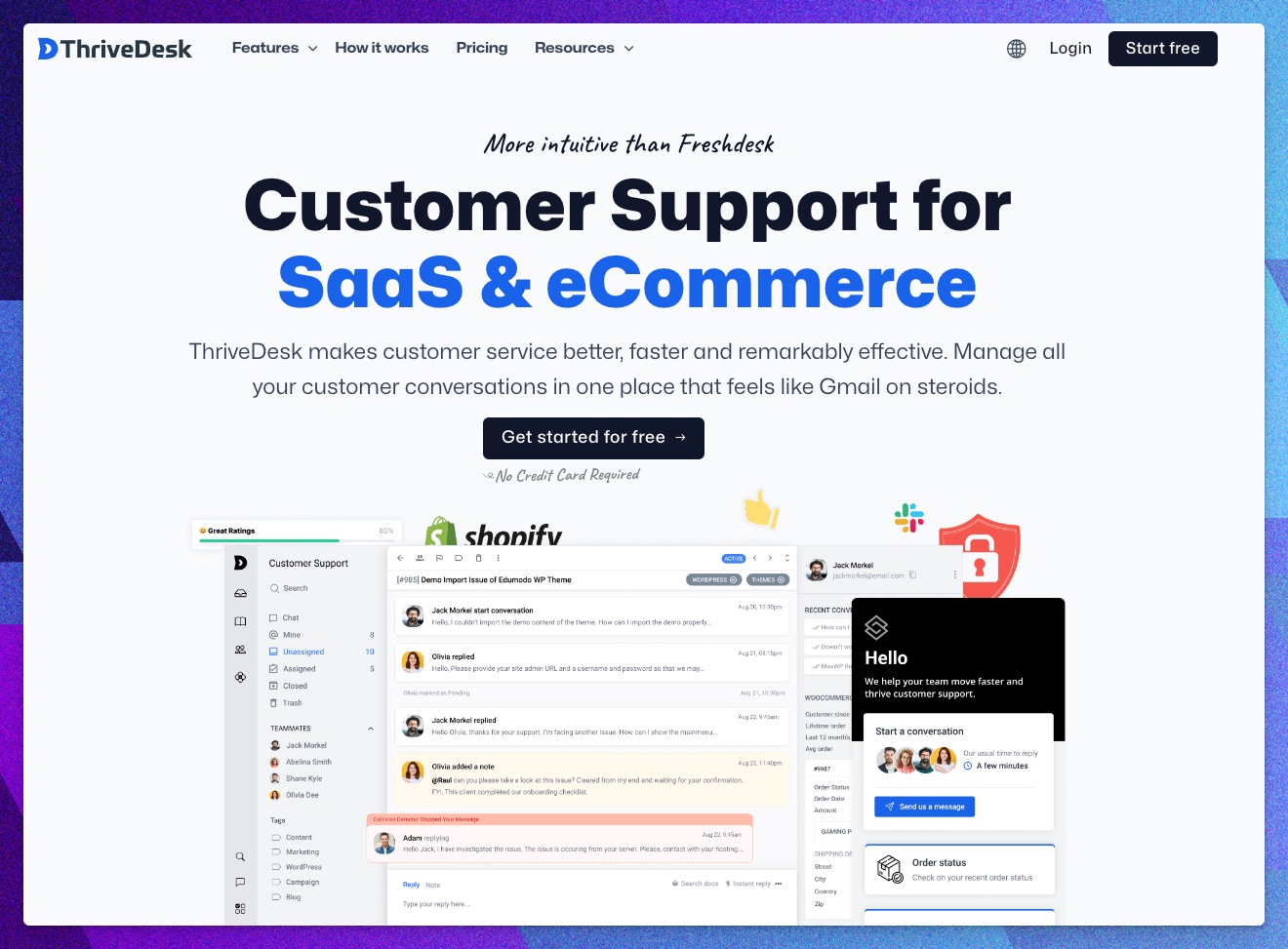
In addition to Intercom vs Zendesk, alternative helpdesk solutions are available in the market. One such alternative worth considering is ThriveDesk. ThriveDesk is a feature-rich helpdesk solution that offers a comprehensive set of tools to manage customer support effectively.
ThriveDesk is a help desk software tailor-made for businesses seeking extensive features and a powerful yet simple live chat assistant. Even better, it’s the most cost-effective, lightweight, and speedy live chat solution available for Shopify business owners.
ThriveDesk empowers small businesses to manage real-time customer communications. Packed with convenient built-in features like shared inbox, instant replies, file sharing directly from the chat widget, emojis for effective communication, satisfaction surveys, sales tracking reports for eCommerce, knowledge base search, and monitoring capabilities, you can efficiently handle your Wix store operations.
Rest assured, ThriveDesk’s lightweight design and speed won’t impact the performance of your Wix-powered eCommerce website. The optimized agent interface ensures rapid responses for maximum efficiency, all while keeping your website running smoothly.
Rated 5 stars out of 5 on G2, ThriveDesk is highly regarded by users.
Key Features of ThriveDesk:
- Self Service Portal (WPPortal)
- Third-party Integrations
- Performance Metrics
- Live Chat
- Workflow Management
- Alerts / Escalation
- Multi-Channel Communication
- Ticket Management
- Customer Database
- Email Management
- Extensive Knowledge Base
- Surveys & Feedback
- Pricing for ThriveDesk starts at just $6.67 per month.
Pros of ThriveDesk:
- Cost-effective, reducing agent costs
- Minimizes customer effort
- Easy installation and usage
- Smooth onboarding experience
- Seamless navigation between chat interactions
- Real-time responses
- ThriveDesk’s user-friendly interface, comprehensive resources (including a community, shared inbox, and live chat), have made it a popular and trusted choice for Wix users. It comes highly recommended for its reliability and ease of use.
Cons of ThriveDesk:
- Lack of native mobile alerts
With ThriveDesk, you can supercharge your website’s growth and streamline customer interactions like never before.
Some more notable software….
| Freshdesk | Starts at $0 | Tickets, knowledge base, live chat, chatbots, automation, reporting, integrations | Easy to use, affordable, scalable, good customer support, free package available | Mobile app not as user-friendly as web app, some users have reported issues with performance |
| HubSpot Service Hub | Starts at $0 | Tickets, knowledge base, live chat, chatbots, automation, reporting, integrations | All-in-one platform that includes CRM, marketing, and sales tools, free package available | Can be expensive for larger businesses, not as customizable as some other platforms |
| UserVoice | Starts at $699 per month | Tickets, feedback management, knowledge base, integrations | Easy to use, good customer support | Limited features compared to some other platforms, not as scalable as some other platforms, very expensive |
| Help Scout | Starts at $20 per user per month | Tickets, knowledge base, live chat, automation, reporting, integrations | Excellent customer support, easy to use, good reporting | Not as customizable as some other platforms |
| TeamSupport | Starts at $49 per user per month | Tickets, knowledge base, live chat, automation, reporting, integrations | Easy to use, good customer support, good reporting | Not as customizable as some other platforms, not as scalable as some other platforms |
To Wrap Up…
When choosing between Zendesk and Intercom for your customer support needs, it’s essential to consider various factors that align with your business goals, operational requirements, and budget. Both platforms offer distinct strengths, catering to customer support and engagement aspects.
Zendesk:
- Zendesk is a versatile and well-established helpdesk solution that accommodates businesses of all sizes, from startups to enterprises.
- It excels in traditional ticket management, offering a user-friendly interface and extensive customization options, allowing you to tailor the platform to your needs.
- Zendesk boasts a vast marketplace of third-party integrations and extensions, which can significantly expand its functionality to meet your unique requirements.
- Zendesk’s pricing tends to be higher, particularly for larger businesses, and additional costs may be incurred for specific add-ons.
Intercom:
- Intercom takes a dynamic approach to customer support, focusing on customer engagement and personalized messaging, making it suitable for businesses prioritizing sales and marketing efforts.
- While it provides ticketing and knowledge base features, Intercom’s strength lies in its real-time chat, email, and in-app messaging interactions.
- Intercom offers extensive customization options, allowing you to tailor customer messaging and in-app experiences to your brand.
- Pricing for Intercom can vary widely and may be more expensive than Zendesk, especially for smaller businesses.
In summary, choosing Zendesk and Intercom hinges on your business’s unique requirements and priorities. If you seek a comprehensive customer support solution with a strong emphasis on traditional ticketing, Zendesk is a solid choice, particularly for smaller to mid-sized businesses.
On the other hand, if you prioritize customer engagement, sales, and personalized messaging, Intercom is a compelling option, especially for startups and rapidly scaling businesses.
When making your decision, consider factors such as your budget, the scale of your business, and your specific growth plans. Explore alternative options like ThriveDesk if you’re looking for a more budget-conscious solution that aligns with your customer support needs.

